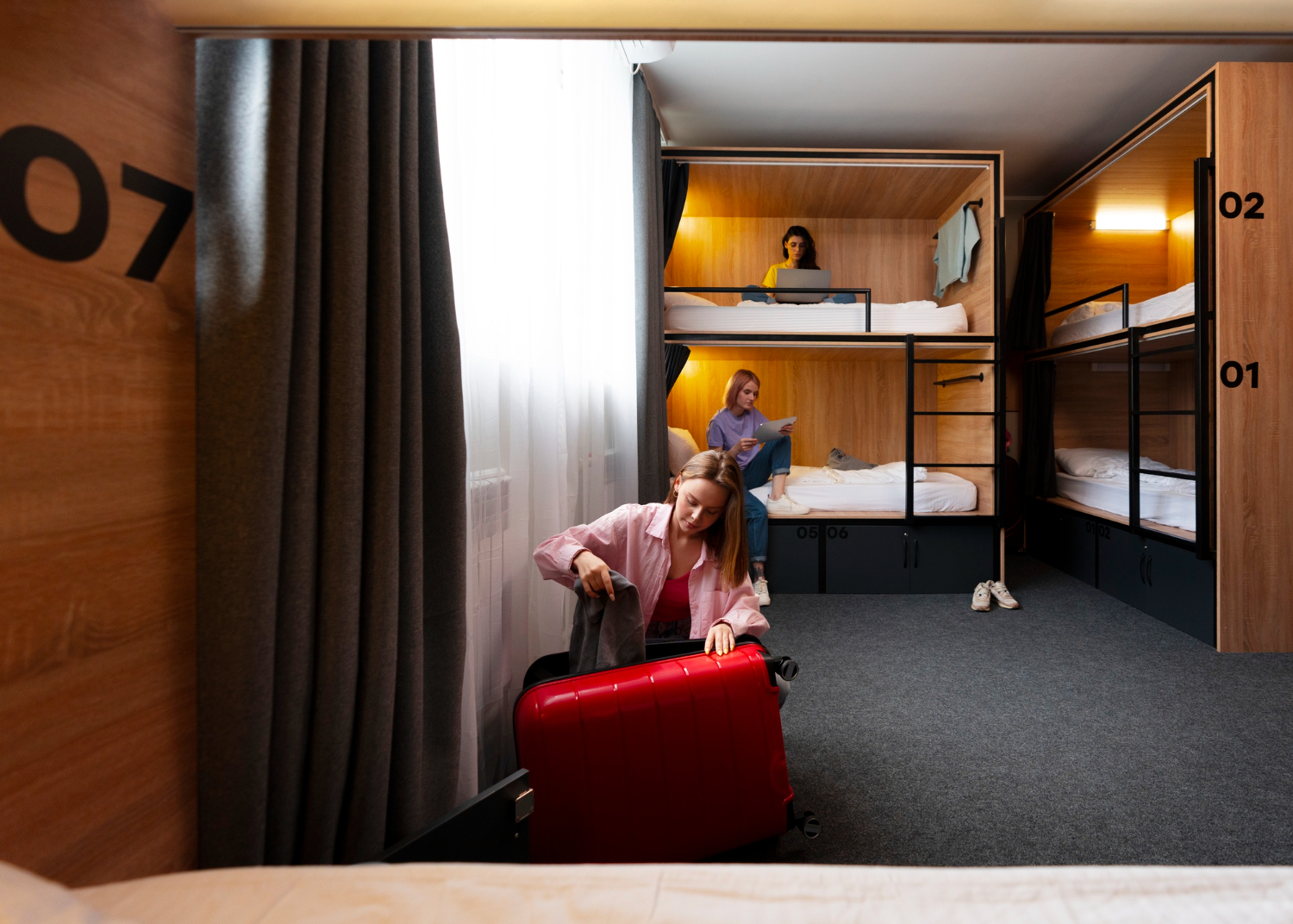Mumbai, India’s bustling metropolis, is more than just a city—it’s a destination for education, ambition, and transformation. Each year, thousands of students from different parts of India move to Mumbai to pursue academic courses, competitive exams, internships, or skill-building programs. One of the primary concerns for these students is finding the right accommodation, and hostel for students in mumbai remain among the most popular and practical choices.
In 2025, the landscape of student housing has seen significant change. While traditional hostels still exist, the modern student now has access to safer, cleaner, and more digitally integrated hostel options across the city. This blog explores everything students need to know about choosing, living in, and benefitting from student hostels in Mumbai.
Why Choose a Hostel in Mumbai as a Student?
Unlike renting an apartment or staying in a PG, hostels offer students a more structured, community-based, and affordable living experience. Mumbai’s fast lifestyle, high real estate prices, and long commutes make hostels a convenient solution for students who want to focus on their studies without being distracted by household responsibilities.
Here’s why hostels are still a preferred option in 2025:
- Affordability: Hostels are typically more budget-friendly, with inclusive rent covering meals, utilities, and cleaning.
- Convenience: Most student hostels are located near academic institutions or are well connected by metro and railway stations.
- Security: Hostels offer controlled entry, CCTV monitoring, and warden supervision, adding a layer of safety.
- Community Support: Living with fellow students provides companionship, shared study motivation, and emotional support.
- Flexibility: Many hostels now offer short-term stays or semester-based contracts, ideal for students attending seasonal coaching or exams.
Key Student Hostel Areas in Mumbai (2025)
Mumbai is vast and varied. The right area depends on your college location, commute tolerance, and budget. Below are some student-friendly zones in the city:
1. Vile Parle & Santacruz
Located in the western suburbs, these areas are known for their concentration of colleges in commerce, management, and arts. They offer a mix of affordable and mid-range hostels.
2. Andheri (East and West)
Popular among students attending media, design, or aviation courses. Well connected by the metro and railway network.
3. Churchgate & Marine Lines
Home to some of the oldest and most prestigious colleges in South Mumbai. Hostels here are close to libraries, museums, and cultural hubs.
4. Powai
A well-planned suburb popular among engineering and tech students due to proximity to educational institutes and startup hubs.
5. Bandra
For students in creative fields, Bandra offers an urban lifestyle with access to cafes, co-working spaces, and studios.
6. Navi Mumbai & Thane
For those looking for lower rent and cleaner, quieter environments, Navi Mumbai and Thane are growing education hubs with well-managed student hostels and better infrastructure.
Types of Student Hostels in Mumbai
1. Institutional Hostels
Run by colleges or universities, these hostels usually give priority to outstation students and often have stricter rules.
2. Private Hostels
Independently run, these hostels cater to students from multiple institutions. They offer more flexibility and variety in terms of amenities.
3. Managed Accommodation
In 2025, more hostels are managed professionally, offering modern infrastructure, digital support systems, and a standardized living experience.
4. Gender-Specific Hostels
Many hostels cater exclusively to male or female students, while some co-ed facilities have dedicated floors and safety measures for gender inclusion.
Facilities You Can Expect in 2025
Student hostels in Mumbai have upgraded significantly in recent years. Here are some typical features offered by modern hostels:
- Furnished rooms with beds, wardrobes, study tables, and lighting.
- High-speed Wi-Fi to support online classes, submissions, and research.
- Meal services, usually two or three meals per day, with vegetarian and sometimes non-vegetarian options.
- Housekeeping on a regular schedule to maintain hygiene in common areas and rooms.
- 24/7 security, including CCTV, biometric access, and curfews.
- Common study rooms, reading lounges, and recreation areas.
- Laundry facilities, either self-service or managed.
- Power backups in areas prone to outages.
Some higher-end hostels also offer air-conditioning, fitness zones, digital notice boards, and career resource centers.
Factors to Consider Before Choosing a Student Hostel
1. Proximity to College or Coaching Center
Choose a hostel close to your academic institution or a public transport node. A long daily commute in Mumbai can drain both time and energy.
2. Room Sharing Options
Hostels typically offer single, double, or triple-sharing rooms. Shared rooms are cheaper but offer less privacy. Choose according to your budget and comfort level.
3. Meal Quality and Timings
Food is often included in the rent. Ensure the menu is suitable for your dietary needs and that the meal schedule aligns with your college timings.
4. Hygiene and Cleanliness
Always inspect washrooms, kitchens, and ventilation before finalizing. A clean living space supports good health and concentration.
5. House Rules and Restrictions
Read the rulebook thoroughly—some hostels have fixed entry/exit times, guest restrictions, or device usage policies. Make sure they align with your lifestyle.
6. Cost Transparency
Understand what’s included in the rent—such as electricity, Wi-Fi, water, and laundry—and check for any hidden or seasonal charges.
Common Challenges and How to Overcome Them
While student hostels offer several advantages, they may come with a few challenges:
- Lack of Privacy: Sharing space with roommates may take getting used to. Use headphones, set quiet study hours, and establish roommate boundaries early.
- Food Quality Issues: Hostel meals may not suit everyone. Keep backup snacks or consider a light cooking arrangement if allowed.
- Noise and Distractions: Not all hostelmates may follow the same schedule. Using noise-canceling tools or finding quieter study corners can help.
- Health Concerns: Shared spaces increase the risk of infections. Maintain personal hygiene and avoid overcrowded rooms whenever possible.
How Hostel Life Prepares You for the Future
Living in a student hostel is more than just accommodation—it’s a stepping stone to adult life. Students develop:
- Discipline through routines like meal timings and curfews
- Communication skills by living with diverse peers
- Time management to balance academics, chores, and recreation
- Adaptability, which becomes essential in the professional world
These soft skills learned in hostel life go a long way in building independence and maturity.
Conclusion
Finding the right hostel for students in Mumbai in 2025 requires thoughtful planning, but it can result in a fulfilling and growth-oriented experience. With a wide range of options across the city, students can choose based on proximity, affordability, facilities, and personal preferences.
By evaluating your needs, visiting shortlisted options, and asking the right questions, you can ensure that your hostel experience supports your academic journey and personal development in one of India’s most dynamic cities.




